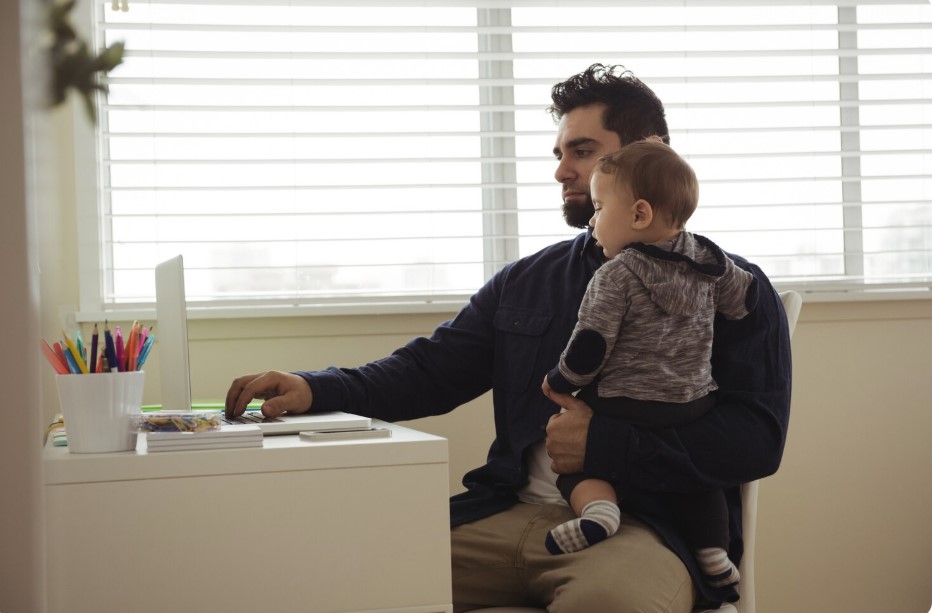Nearly a third of UK parents are pessimistic about their children’s financial futures, fearing everything from never owning a home to being unable to retire.
These findings come from our Real Life Advice Report 2025, based on a survey of 8,000 people exploring how attitudes to money, financial advice and the future are changing.
At a glance
- 31% of parents feel pessimistic about their children’s financial futures – whether that’s getting on the property ladder, earning enough, or being able to retire.
- The single biggest fear is that their child will never own a home: 4 in 10 parents believe their children won’t achieve this traditional cornerstone of financial security.
- More than half of parents who receive ongoing financial advice feel optimistic about their children’s economic future.
A generation of parents caught between hope and anxiety
It’s natural for parents to want the best for their children – and just as natural to worry about what lies ahead. Today’s concerns are sharpened by rising living costs, increasingly unaffordable housing and a rapidly changing jobs market.
The second chapter of this year’s Real Life Advice Report reveals a generation of parents pulled in two directions: anxious about the challenges their children face, yet hopeful that with the proper support, they can still build secure futures.
While 4 in 10 parents (40%) feel optimistic about their children’s financial prospects, almost a third (31%) say they are pessimistic when they look ahead.
The biggest financial worries for children’s futures
1. Getting on the property ladder
The most significant concern is that children will never own a home. Around 40% of parents believe their children will never get onto the property ladder and may spend their lives renting – or even living at home.
It’s not hard to see why. Average UK house prices have risen by 74% over the past 20 years, with a typical home now costing £268,200, according to Zoopla.¹ Combined with tighter mortgage lending criteria and higher stamp duty, home ownership can feel increasingly out of reach for younger generations.
2. Saving enough for retirement
The next primary concern is retirement. More than a third of parents (38%) worry that their child will not be able to save enough to fund life after work.
Generous defined benefit (final salary) pensions have largely disappeared from the private sector, and the State Pension alone is unlikely to deliver a comfortable retirement. As a result, 36% of parents fear their son or daughter may never be able to stop working and will miss out on a well-earned retirement.
3. Earning power, inflation and AI
Parents are also worried about the quality and security of their children’s working lives:
- 37% fear their children’s salaries won’t keep pace with inflation.
- 21% worry that artificial intelligence (AI) will reduce access to well-paid jobs.
As living costs rise and technology reshapes the workplace, many parents question whether their children will be able to build the same level of financial security they enjoyed.
Alexandra Loydon, Director of Advice Policy and Operations at St. James’s Place, says:
“The financial world facing today’s children is undeniably more complex than it was for their parents and grandparents. Rising costs, the demise of more generous pension schemes, living longer in retirement, and housing that feels out of reach all combine to paint a challenging picture.”
How parental optimism varies across the UK
The report also highlights clear regional differences in how parents feel about their children’s financial futures.
- Most optimistic:
- London – 53% of parents feel confident, and only 24% feel pessimistic.
- Northern Ireland (44%) and Scotland (42%) also report relatively high levels of optimism.
- Least optimistic:
- Parents in the South East and South West are the least optimistic (both 34%).
- In these regions, more than a third of parents are pessimistic about their children’s financial outlook (36% and 34% respectively).
These differences may reflect variations in local housing markets, job opportunities and overall economic confidence.
Why professional advice makes parents more optimistic
The outlook is noticeably brighter among parents who receive ongoing professional financial advice.
- 54% of parents who take ongoing advice feel optimistic about their children’s financial prospects, compared with 34% of those who don’t receive advice.
- Among optimistic parents receiving advice, 39% believe their children have the foundations of a sound financial education, compared with 28% among those without an adviser.
- Parents who take ongoing advice are also twice as likely to say their children already have their own investments or “passive wealth” (18% versus 8%).
In other words, advice doesn’t just help parents manage their own finances – it can also help them pass on knowledge, habits and assets that support the next generation.
As Alexandra Loydon notes, “a blend of parental guidance, greater access to professional advice and stronger education can make the path ahead far less daunting” for future generations.
Please get in touch with us to organise a meeting.
About the research
Opinium surveyed 8,000 UK adults between 22 July and 5 August 2025. Quotas and post‑weighting were applied to ensure the sample was representative of the UK adult population.
Within this poll, relevant weighted sub‑samples included:
Employment status: working, self‑employed, student, retired, unemployed, and other not working
Men, women and other genders
Age groups: 18–34, 35–54, 55+
Nations and regions: Scotland, Northern Ireland, North East, North West, Yorkshire and Humberside, East Midlands, West Midlands, Wales, East of England, London, South East, South West



